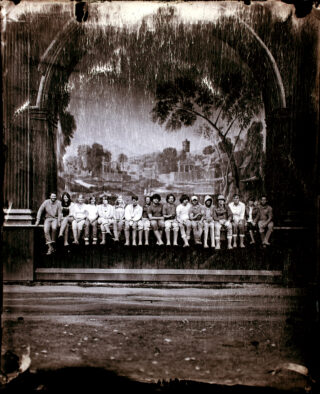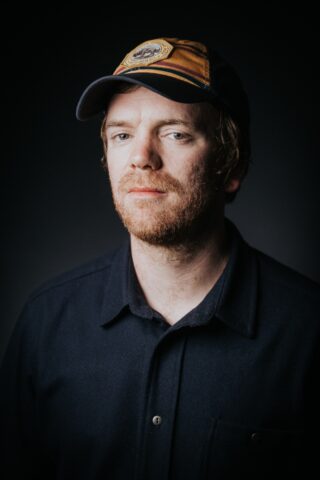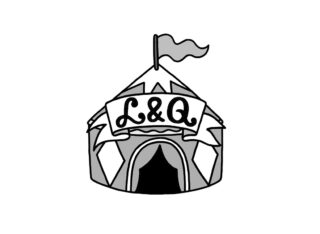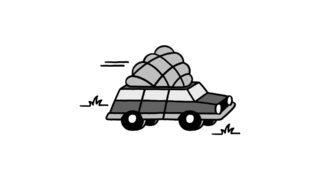As they return for 2021, here’s how End of the Road festival survived 15 years and one disastrous pandemic
Covid-19, three re-bookings and a total lack of government support: all in a year-and-a-half’s work for EOTR

Covid-19, three re-bookings and a total lack of government support: all in a year-and-a-half’s work for EOTR
Simon Taffe picks up the phone at the end of a long bike ride. He’s chosen one of the hottest days of the year to cycle from his home in London down to West Wittering, some 90 miles away. After the year-and-a-half he’s had, the urge to clear his head is an understandable one: as co-founder and director of End of the Road festival, the Covid-19 pandemic plunged him and one of the independent British music calendar’s most beloved events into a maelstrom of precarity, leaving him, and other organisers around the UK, fighting for the futures of the festivals they’d spent years pouring their hearts and souls into. The word he keeps using – the one that seems to best define the past 18 months – is “uncertainty”; uncertainty over the nature of the virus’ transmission, uncertainty over the future viability of tightly-packed crowds and, most galling of all, uncertainty caused by a messy and uncaring government response.
“I never thought anything would be harder than the first couple of years,” he says, laughing grimly as he reflects upon the festival’s lean fledgling years at Larmer Tree Gardens in 2006 and 2007, “so, all of this has proven me wrong. It’s stressful enough booking a festival once a year; we’ve had to rebook the 2021 lineup three times. But, as of the time this goes to press, it looks like all systems go.”

The decision to go ahead with this year’s instalment has represented a major pressing of the gamble button, not least because, for reasons unsurprising given how many festivals have had to pull the plug already this summer, Taffe and his team have had to move forward without any insurance. “From what I can tell, if there is any backtracking from the government on the lifting of restrictions, it won’t happen until the end of September. So, we’re just fucking going for it. We’ve come this far, so we’ve kind of got no choice.”
End of the Road’s regular slot as one of the British festival summer’s traditional curtain-closers has worked in their favour this year, and Taffe watched on back in June when the decision to delay England’s unlocking meant that events set for July ended up being scrapped. When the 2021 edition goes ahead from 2-5 September, it will mark the end of an arduous period of constant nervousness abut the future, with hopes raised, then dashed, then raised again, then dashed again, in what’s felt like an agonising vicious cycle.
“When we made the decision to cancel last year, which we were obviously gutted about, we were at least thinking, surely, we’ll be OK by next summer,” Taffe explains. “So we ploughed on with organising like we normally would, and spent the money, and kept everybody rolling. By the time the roadmap was pushed back in June, it was just a case of thinking that we’d already spent £200,000 getting to this point. We couldn’t really turn back by then.”
There were still huge undertakings to deal with on a tight deadline – not least the Herculean effort of having to put together a new lineup when a slew of U.S. artists who’d initially been booked, including Bright Eyes, Pixies, Big Thief, Angel Olsen and Pinegrove, were forced to pull out, as it became increasingly clear that it’d be impossible for them to route European tours with every country finding themselves at a different place in their recoveries from the pandemic. “As you can see now, American artists are getting back out on the road over there,” says Taffe, “so why would they come over here? I know most of them really didn’t want to have to cancel – they were genuinely excited to play for us – but with Europe all over the shop, they’ve done the sensible thing. That left us looking at British bands to step in, but that in and of itself became a bit of a bunfight, because everybody’s trying to book a limited number of bands at short notice.”
Any given End of the Road lineup has to fit a certain remit: big-hitting indie icons filling the headlining slots, a mix of veterans and buzz bands on the undercard, and plenty of room down the bottom end of the bill for emerging artists, too. With a limited pool of potential bill-toppers to choose from, Taffe and his team were forced to think creatively. “I mean, it’d be nice to be able to think, ‘oh, we’ll just go and get PJ Harvey,’ but why would she tour in a pandemic? It’s obviously not that simple. So you’re left thinking about which British bands are the right size to headline – you’re thinking about the Belle and Sebastians and Mogwais of the world – and they might be in the studio or waiting until next year to go out and play. That’s why we had to think about what else we could do, so we approached Jonny Greenwood and asked him to do something that was experimental and a bit of a one-off – it was that kind of thing.”
Greenwood will collaborate with 12 Ensemble and Kat Tinker at the festival to bring to life his impressive catalogue of film scores, whilst other highlights will include the likes of Sleaford Mods and Arab Strap finally being able to air new tracks from albums released in lockdown. Even a cursory glance across the lineup, meanwhile, shows us that the reshuffle of the pack has allowed the organisers to give more of a platform to showcase new acts – Taffe, throughout the 18 months of turmoil, has consistently looked for positives like this. “Especially lower down the bill, there’s more fresh talent than ever,” he concurs. “As much as the whole pandemic’s been a shitshow, there’s been little reasons to be optimistic about the future. I think it’s helped forge a really close bond between independent festival organisers. We’ve always gotten on with the guys from Green Man, for instance, but this past year has brought us a lot tighter; sharing ideas, working things out together. The time away has given us the chance to rethink certain things and work on other projects, too.”
He takes a similarly sanguine stance on the help that’s been available to events like his during the pandemic, too, pointing out that the money they were able to claim from Arts Council England was more generous than has been available in many other European countries. “Not that that was anything to do with the fucking Tory government,” he reflects, “but it was a turning point for us, because it allowed us to press on, to keep paying people, and not have to strip ourselves down to an absolute skeleton staff. I’m grateful for that; things wouldn’t have gone as smoothly without it.”
The wider government response, though, has been a cause of extreme frustration, and there’s no doubt in Taffe’s mind that the music industry, and the arts as a whole, have been neglected, particularly in terms of the constant flip-flopping meaning an inability to plan too far ahead. “There’s definitely a lot of festivals that were screwed by the four-week delay,” he says. “Festivals like Boomtown and Kendal Calling, where really there was no reason they couldn’t have gone ahead – they just felt they couldn’t take the risk. For us, we just found the uncertainty really fucks everything. It leaves your staff feeling down, and we’ve lost contractors because they’ve had to go off and take other jobs. When you look at the support lent to, say, the film industry to get back up and running, the constant chopping and changing has been infuriating.”
Given how many dark nights of the soul Taffe must have had over the past eighteen months, you wonder whether he ever seriously doubted the long-term viability of End of the Road. “To be honest, I never quite did. I mean, I certainly thought I’d be fucked, paying debts back for ages. It got a bit hairy as we got into year two of the pandemic, but my logic was always that if our hand was forced, we’d be bailed out. We’d already had huge chunks of arts funding, but just as importantly there was serious loyalty from the festival-goers. More than 80% of ticket-holders held on to them and didn’t ask for a refund. We’re lucky to have that.”
Taffe confirms that many of the U.S. bands booked for 2020 and 2021 have shown similar loyalty. “One good thing is that a lot of my work for 2022 is done, because we’ve pencilled a lot of those acts in,” he says. Before then, though, he’s expecting a genuine party atmosphere this September. “I think having a year-and-a-half kicked out of the festival calendar has helped people to realise that live music is therapy. It lifts people out of themselves. Even the socially-distanced shows I’ve been to this year, there was this sense of real relief that we had gigs back in any form. Everyone’s gagging to get back to it now. It’s going to be really quite special.
 L&Q Presents: Time-Hop Silent Disco Opening Party
L&Q Presents: Time-Hop Silent Disco Opening Party
The Tipi Stage. Thursday Sept 2, 23:30 – 02:00
After a record number of positive comments (8), our silent disco returns by popular demand. Channel 1 will exclusively play music released in 2001, and Channel 2 will only play music from artists that have performed at EOTR over its 15-year history. Bring dancing shoes and a £10 deposit for your headphones.

L&Q Presents: The L&Q Stage
The Big Top. Sunday Sept 5
Girl Band, Dry Cleaning, Scalping, W. H. Lung, PVA, William Doyle, John, Oldboy
Lineup subject to change. Check endoftheroadfestival.com for updates.